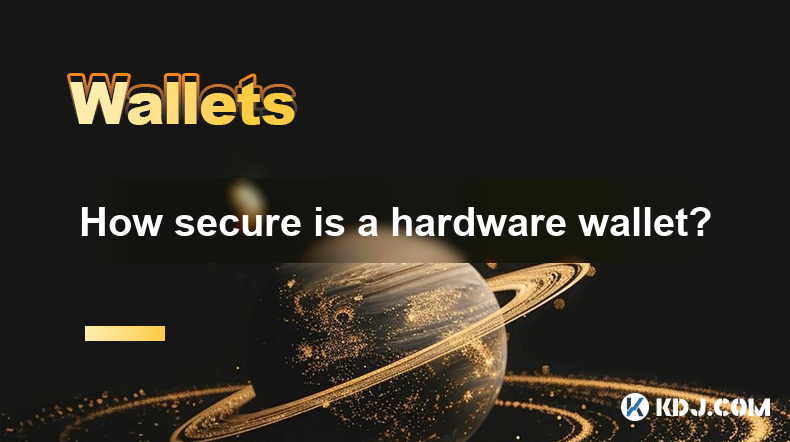-
 Bitcoin
Bitcoin $99,617.4815
2.31% -
 Ethereum
Ethereum $1,986.4455
8.62% -
 Tether USDt
Tether USDt $1.0003
0.03% -
 XRP
XRP $2.2144
3.38% -
 BNB
BNB $617.2234
2.13% -
 Solana
Solana $156.5854
6.33% -
 USDC
USDC $1.0002
0.01% -
 Dogecoin
Dogecoin $0.1858
7.44% -
 Cardano
Cardano $0.7220
7.11% -
 TRON
TRON $0.2501
1.15% -
 Sui
Sui $3.8071
13.18% -
 Chainlink
Chainlink $14.9210
8.33% -
 Avalanche
Avalanche $20.7850
6.19% -
 Stellar
Stellar $0.2743
5.14% -
 Bitcoin Cash
Bitcoin Cash $417.6181
13.65% -
 UNUS SED LEO
UNUS SED LEO $8.7605
0.83% -
 Shiba Inu
Shiba Inu $0.0...01359
5.91% -
 Hedera
Hedera $0.1871
6.00% -
 Toncoin
Toncoin $3.1226
3.14% -
 Hyperliquid
Hyperliquid $21.5481
1.03% -
 Litecoin
Litecoin $92.3374
2.77% -
 Polkadot
Polkadot $4.2372
6.72% -
 Monero
Monero $293.7735
2.89% -
 Dai
Dai $1.0003
0.02% -
 Bitget Token
Bitget Token $4.3628
1.22% -
 Ethena USDe
Ethena USDe $1.0004
0.00% -
 Pi
Pi $0.6243
6.95% -
 Pepe
Pepe $0.0...09531
16.64% -
 Bittensor
Bittensor $402.7974
10.64% -
 Uniswap
Uniswap $5.2340
7.92%
How secure is a hardware wallet?
Hardware wallets provide unparalleled security due to offline storage, multiple security layers, and the immutability of the stored private keys, making them highly resistant to remote hacking and unauthorized access.
Feb 20, 2025 at 11:13 am

Key Points
- Hardware wallets provide unparalleled security compared to software wallets and online exchanges.
- They are offline devices that store private keys offline, making them immune to remote hacking.
- Hardware wallets utilize multiple layers of security, including PIN codes, biometric authentication, and advanced encryption algorithms.
- Losing or damaging a hardware wallet can result in the loss of funds, as the PIN and mnemonic seed are the primary means of recovery.
Comprehensive Guide to Hardware Wallet Security
Offline Storage
Hardware wallets differ significantly from software wallets in their offline nature. Unlike software wallets that store private keys on online devices, hardware wallets keep them isolated offline, making them immune to remote hacking attacks. This offline isolation is the cornerstone of hardware wallet security.
Multiple Security Layers
Hardware wallets employ multiple layers of security to protect user funds. They typically incorporate PIN codes, biometric authentication (e.g., fingerprint or face recognition), and advanced encryption algorithms (e.g., AES-256). These layers work together to provide comprehensive protection against unauthorized access to the stored private keys.
PIN Code
A PIN code is a user-defined numerical password that serves as the first line of defense in hardware wallet security. When the device is turned on or accessed, it prompts the user to enter the PIN. Incorrect PIN entry attempts are typically limited, and exceeding this limit can result in the wallet wiping its contents for security purposes.
Biometric Authentication
In addition to PIN codes, some hardware wallets offer biometric authentication options, such as fingerprint or face recognition. This adds an extra layer of security by requiring the user's physical presence to access the device. Biometric data is stored securely within the hardware wallet and is not shared externally.
Encryption
Hardware wallets use sophisticated encryption algorithms like AES-256 to encrypt the private keys stored within them. AES-256 is a widely recognized and highly secure encryption standard, making it extremely difficult for unauthorized parties to decrypt the protected data.
Mnemonic Seed Recovery
In case of a lost or damaged hardware wallet, users can recover their funds using a mnemonic seed, also known as a recovery seed. This is a set of 12 or 24 words that allow the user to restore their wallet and private keys on a new hardware wallet. It is crucial to safely store the mnemonic seed offline and never share it with anyone.
Precautions for Enhanced Security
- Choose a reputable hardware wallet manufacturer: Opt for well-established brands with a proven track record in security and reliability.
- Use a strong PIN code: Create a PIN that is unique and complex, avoiding predictable patterns or personal information.
- Store the mnemonic seed securely: Write down the mnemonic seed on paper and keep it in a safe location. Never store it digitally or share it online.
FAQs
What happens if I lose my hardware wallet?
You can recover your funds using the mnemonic seed. However, if you have lost both the hardware wallet and the mnemonic seed, your funds are irrecoverable.
Does a hardware wallet need an internet connection?
No, hardware wallets operate offline and do not require an internet connection. They only need to connect to a computer or smartphone via USB or Bluetooth for initial setup and occasional software updates.
Can a hardware wallet be hacked?
While hardware wallets offer robust security, it is not impossible for them to be compromised through physical attacks, such as tampering with the device's internals. However, these attacks require a high level of technical expertise and are highly unlikely for most users.
Are there any disadvantages to using a hardware wallet?
- Higher cost: Hardware wallets are more expensive than software wallets due to their specialized hardware and security features.
- Less convenience: Hardware wallets require physical interaction and may be less convenient for on-the-go transactions compared to software wallets.
- Potential for user error: Incorrect PIN entries or losing the mnemonic seed can result in the loss of funds, as hardware wallets cannot be recovered using email or phone verification like online exchanges.
Disclaimer:info@kdj.com
The information provided is not trading advice. kdj.com does not assume any responsibility for any investments made based on the information provided in this article. Cryptocurrencies are highly volatile and it is highly recommended that you invest with caution after thorough research!
If you believe that the content used on this website infringes your copyright, please contact us immediately (info@kdj.com) and we will delete it promptly.
- Bitcoin Just Broke $99,000 as Crypto Market Reacts to Trump's "Major Trade Deal" Teaser
- 2025-05-08 23:15:12
- Bitcoin Cash (BCH) Breaks 8-Year Downtrend as BTC Bull Token Promises 10x Gains
- 2025-05-08 23:15:12
- Ripple's XRP Has Gained 3% in the Last 24 Hours, Riding the Wave of Renewed Optimism in the Broader Cryptocurrency Market.
- 2025-05-08 23:10:12
- Bitcoin (BTC) is no longer just “digital gold” — Dan Held says the narrative needs to evolve
- 2025-05-08 23:10:12
- Stripe Expands Into the Crypto Arena, Launching Support for USDC Stablecoin Payments
- 2025-05-08 23:05:12
- GoMining Removes the Friction of Entry Into the Bitcoin Ecosystem
- 2025-05-08 23:05:12
Related knowledge

What currencies does Trezor Model T support? How to add them?
May 08,2025 at 08:42pm
The Trezor Model T is a popular hardware wallet that supports a wide range of cryptocurrencies, making it a versatile choice for crypto enthusiasts. In this article, we will explore the various currencies supported by the Trezor Model T and provide a detailed guide on how to add them to your wallet. Supported Currencies on Trezor Model TThe Trezor Model...

Does Exodus support DeFi? How to connect to the application?
May 08,2025 at 07:35pm
Does Exodus support DeFi? How to connect to the application? Exodus is a popular multi-asset cryptocurrency wallet that has garnered attention for its user-friendly interface and wide range of supported cryptocurrencies. One of the frequently asked questions by users is whether Exodus supports decentralized finance (DeFi) applications and how to connect...

Can the Exodus wallet be anonymous? How to protect privacy?
May 08,2025 at 09:35pm
Can the Exodus Wallet Be Anonymous? How to Protect Privacy?The question of whether the Exodus wallet can be anonymous and how to protect privacy within it is crucial for users who value their financial privacy. Exodus is a popular multi-currency wallet that supports a variety of cryptocurrencies, but its default settings do not inherently provide comple...

Where is the private key of Exodus? How to export it?
May 08,2025 at 09:22pm
Where is the private key of Exodus? How to export it? Exodus is a popular multi-currency wallet that allows users to store, manage, and exchange a variety of cryptocurrencies. One of the critical aspects of managing a cryptocurrency wallet is understanding where your private keys are stored and how to export them if necessary. This article will guide yo...

How to import an old wallet to Exodus? Do I need a private key?
May 08,2025 at 07:42pm
Introduction to Importing an Old Wallet to ExodusImporting an old wallet into a new platform like Exodus can be a crucial task for cryptocurrency users looking to manage their assets more efficiently. Exodus is known for its user-friendly interface and support for a wide range of cryptocurrencies. When considering whether to import an old wallet, it's i...

How does MetaMask view mnemonics? What if the mnemonics are leaked?
May 08,2025 at 08:01pm
How does MetaMask view mnemonics? What if the mnemonics are leaked? MetaMask, a popular cryptocurrency wallet, relies heavily on mnemonic phrases for the security and accessibility of users' funds. Understanding how MetaMask views mnemonics and the consequences of their leakage is crucial for any user. This article delves into the mechanics of mnemonics...

What currencies does Trezor Model T support? How to add them?
May 08,2025 at 08:42pm
The Trezor Model T is a popular hardware wallet that supports a wide range of cryptocurrencies, making it a versatile choice for crypto enthusiasts. In this article, we will explore the various currencies supported by the Trezor Model T and provide a detailed guide on how to add them to your wallet. Supported Currencies on Trezor Model TThe Trezor Model...

Does Exodus support DeFi? How to connect to the application?
May 08,2025 at 07:35pm
Does Exodus support DeFi? How to connect to the application? Exodus is a popular multi-asset cryptocurrency wallet that has garnered attention for its user-friendly interface and wide range of supported cryptocurrencies. One of the frequently asked questions by users is whether Exodus supports decentralized finance (DeFi) applications and how to connect...

Can the Exodus wallet be anonymous? How to protect privacy?
May 08,2025 at 09:35pm
Can the Exodus Wallet Be Anonymous? How to Protect Privacy?The question of whether the Exodus wallet can be anonymous and how to protect privacy within it is crucial for users who value their financial privacy. Exodus is a popular multi-currency wallet that supports a variety of cryptocurrencies, but its default settings do not inherently provide comple...

Where is the private key of Exodus? How to export it?
May 08,2025 at 09:22pm
Where is the private key of Exodus? How to export it? Exodus is a popular multi-currency wallet that allows users to store, manage, and exchange a variety of cryptocurrencies. One of the critical aspects of managing a cryptocurrency wallet is understanding where your private keys are stored and how to export them if necessary. This article will guide yo...

How to import an old wallet to Exodus? Do I need a private key?
May 08,2025 at 07:42pm
Introduction to Importing an Old Wallet to ExodusImporting an old wallet into a new platform like Exodus can be a crucial task for cryptocurrency users looking to manage their assets more efficiently. Exodus is known for its user-friendly interface and support for a wide range of cryptocurrencies. When considering whether to import an old wallet, it's i...

How does MetaMask view mnemonics? What if the mnemonics are leaked?
May 08,2025 at 08:01pm
How does MetaMask view mnemonics? What if the mnemonics are leaked? MetaMask, a popular cryptocurrency wallet, relies heavily on mnemonic phrases for the security and accessibility of users' funds. Understanding how MetaMask views mnemonics and the consequences of their leakage is crucial for any user. This article delves into the mechanics of mnemonics...
See all articles

























![[2025.05.08] The two routes of Bitcoin continue to be observed, and gold is still bullish. [2025.05.08] The two routes of Bitcoin continue to be observed, and gold is still bullish.](/uploads/2025/05/08/cryptocurrencies-news/videos/routes-bitcoin-continue-observed-gold-bullish/image_500_375.webp)


























































